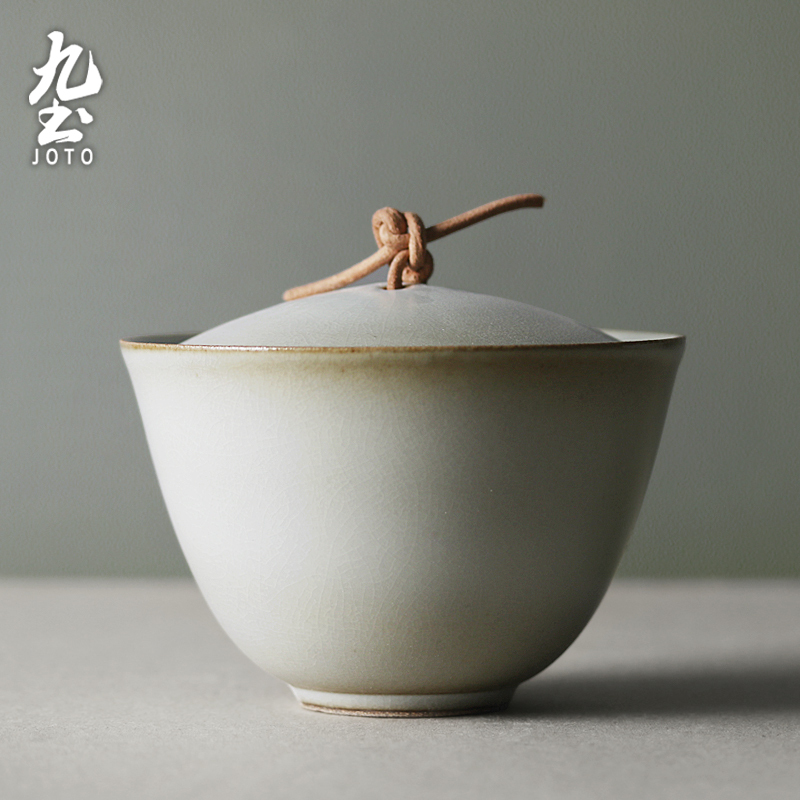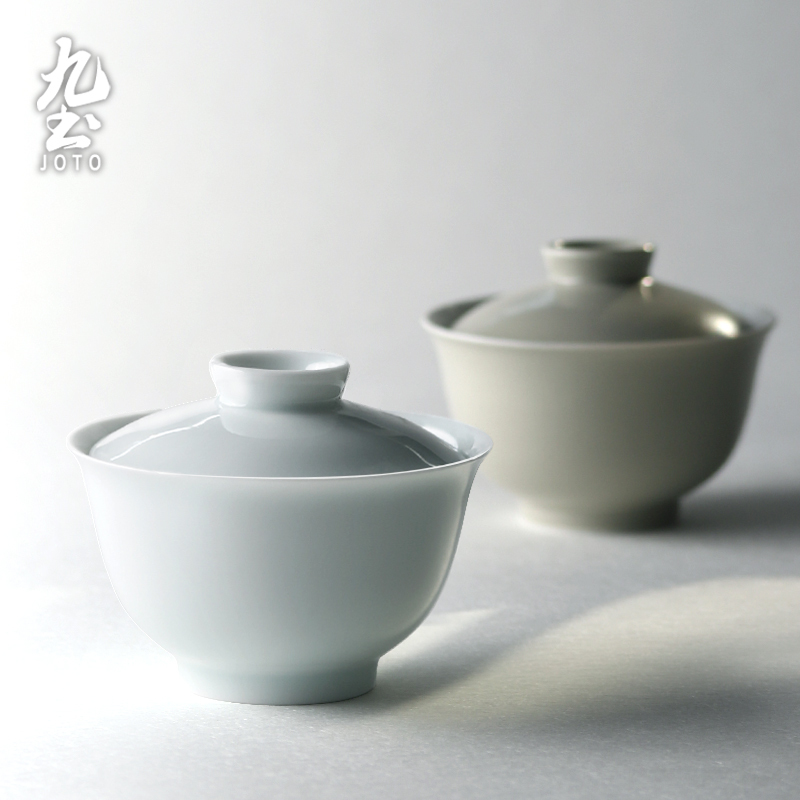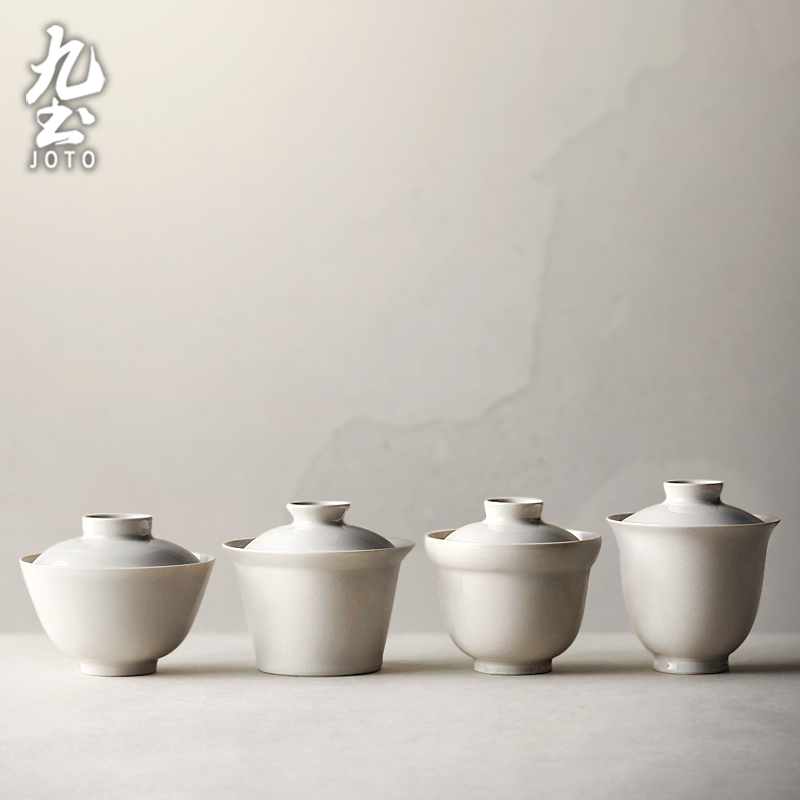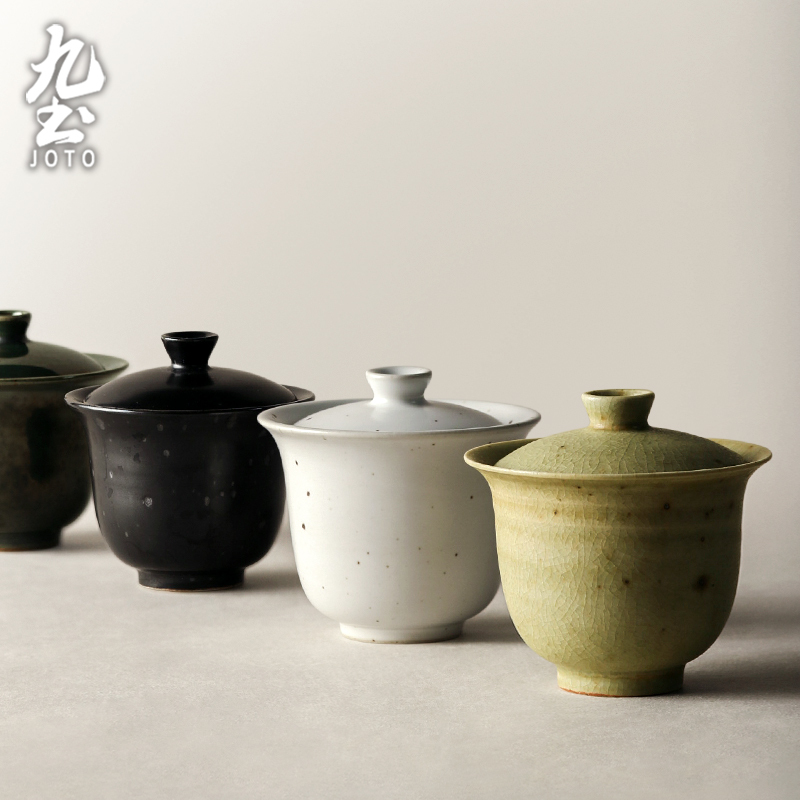[JOTO Gaiwan (Lidded Tea Bowl) Recommendation] The Practice of Non-Reaction: Every Encounter Is Accidental—Acceptance Brings Clear Skies
Life has a way of suddenly turning up the volume: a canceled interview, an unexpected goodbye, a late-night message, a sudden downpour after a string of sunny days. Our first instinct is almost always shock—the heart jolts, the breath stumbles, and our mind rushes to stage a dozen futures at once. Startled reactions are natural, like a cat puffing up at a sound in the dark. But calmness is a skill we learn—it’s the act of placing a chair inside the heart and inviting ourselves to sit.
This piece isn’t about becoming indifferent. It’s about stretching the space between reflexive reaction and no need to react. When we learn to place a comma instead of a period after life’s unexpected events, the world begins to feel more spacious.

【Product Recommendation】JOTO Handcrafted Rustic Clay Covered Bowl_GWR0023
The moment the wind stirs, you can allow yourself to be startled. It’s okay to admit your pulse quickens, your palms sweat, your voice sharpens—these are human things. The key isn’t to deny the fear, but to let it ebb. Like waiting for a child to finish crying before wiping their face, we must let emotion complete its path before we take ourselves home again.
When you stop rushing to “fix” your panic, panic fades more quickly. “Non-reaction” here doesn’t mean freezing—it means handing control back to time and breath, allowing the body to slide down from the slope of tension. You’ll notice: when you stop chasing a gust of wind, it’s just wind; when you stop gripping a thought, it’s just a thought. Once fear recedes, you can finally see the outline of what’s happening and decide clearly—should you open an umbrella, or simply wait for the clouds to pass?

【Product Recommendation】JOTO Solid-Color Ceramic Tea Set with Covered Bowl_GWR0024
We panic because we mistake chance for certainty, or demand guarantees from what is meant to flow. Most encounters are coincidences of wind and timing: you happened to be there when someone turned around; you were joyful when they were downcast; you were ready just as they had to leave.
When we treat every meeting like an essay prompt—forcing reasons and meanings—our hearts grow narrow. In truth, connections rise and fall like tides, naturally coming and going. When we accept the role of coincidence and stop forcing relationships to promise more than they can hold, the world softens.
Some people stay a long while; some pass by like a brief shadow. Some shake your whole season; others only teach you a week’s weather. All are fine. You don’t have to understand everything—and whether you do or not won’t stop the next sunrise.

【Product Recommendation】JOTO Japanese-Style Handcrafted Ceramic Covered Bowl_GWR0027
Instant reaction has become our modern reflex: reply the moment a message arrives, defend the second a misunderstanding appears, control as soon as plans shift. We equate “quick response” with mastery, when often it means being pulled by the situation itself.
The practice of non-reaction begins with a simple question each time something unexpected happens: “Does this really need my reaction right now?”
If the answer is no, delay it. Let the moment unfold and reveal more of itself. Delay is not avoidance—it is wise waiting. It’s not neglect—it’s choosing the right time.
When you replace “immediate” with “timely,” you’ll find that many things you once tried to force resolve themselves over time. And what truly requires your attention becomes clearer and lighter to handle. Non-reaction doesn’t mean doing nothing—it means refusing to be rushed by habit or fear.

【Product Recommendation】JOTO Japanese-Style Handcrafted Ash-Glazed Covered Bowl_GWR0029
Acceptance is not surrender; calmness is not passivity. Admitting “I can’t make everyone stay,” “I can’t control every storm,” “I can’t find reasons for every coincidence” doesn’t stop you from acting where you can. You can still call, write, apologize, re-plan, change direction, or adjust your pace.
But your actions are no longer frantic compensations for anxiety—they become deliberate, lucid choices. You start to value the small, steady things still in your hands: eating regularly, sleeping on time, maintaining courtesy and care toward others.
Gradually you realize: sunny days aren’t gifts that fall from the sky—they’re light you keep tending between the clouds. When the heart learns to be both soft and firm, the world responds with a brightness that feels just right.

【Product Recommendation】JOTO Zen-Inspired Vintage Handcrafted Covered Bowl_GWR0033
One day you’ll notice that the message that once left you trembling is now just another notification; the change that once kept you awake is now merely a line on your schedule. It isn’t that life has grown gentler—it’s that you’ve learned steadiness.
You understand that every encounter is accidental—some stay, some go. You understand that beginnings and endings follow their own rhythm—you don’t need to force them. You understand that non-reaction isn’t coldness—it’s leading your heart out of shock, back into air you can breathe.
When you understand this, most of your days become sunny. Even rain no longer feels like disaster—just a reminder to bring a coat. You walk your chosen path, keeping a polite distance from the world, nodding and smiling to those who come and go. You treat every coincidence as a gift once possessed, and every farewell as rehearsal for the next reunion.
The sky has never been just one color—and now, neither are your reactions. When spaciousness and clarity move into your heart, sunshine begins to grow from your every step.
✨ See more products on our official site: https://www.jotomall.com/







